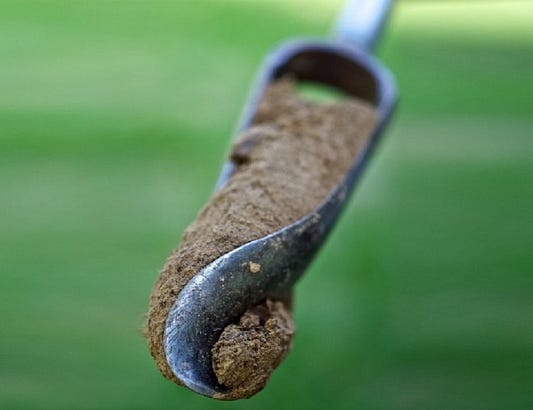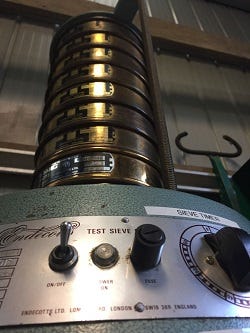A Comprehensive Guide to Residential Soil Testing and Site Classifications in Melbourne
When planning a construction project in Melbourne, whether it’s building a new home or adding an extension, understanding the soil composition and site classification is crucial. At The 4 Spheres, we specialize in Residential Soil Testing Melbourne and provide accurate site classifications in Melbourne to ensure your construction project is built on a solid foundation. In this blog, we will explore the importance of soil testing, the process involved, and how site classifications can impact your project.

Importance of Residential Soil Testing in Melbourne
Residential soil testing is a critical first step in any construction project. It helps in understanding the soil properties and identifying potential issues that could affect the stability and safety of the structure. Here are some key reasons why residential soil testing is essential:
- Foundation Stability: Soil testing determines the bearing capacity of the soil, which is crucial for designing a stable foundation.
- Identifying Soil Composition: Different soils react differently under load. Knowing the soil composition helps in selecting appropriate building materials and techniques.
- Preventing Structural Issues: Identifying potential problems such as soil movement, shrinkage, and expansion can prevent future structural issues like cracks and foundation settling.
- Complying with Regulations: Soil testing ensures compliance with local building codes and regulations, which is necessary for obtaining construction permits.
The Process of Residential Soil Testing
At The 4 Spheres, we follow a comprehensive process for residential soil testing to ensure accurate results:
- Site Inspection: Our experts conduct a thorough site inspection to identify potential problem areas and plan the testing process.
- Soil Sampling: We collect soil samples from various depths and locations across the site using specialized equipment.
- Laboratory Analysis: The soil samples are analyzed in a laboratory to determine their physical and chemical properties, including moisture content, density, and composition.
- Reporting: Based on the laboratory results, we prepare a detailed soil report that includes recommendations for foundation design and construction techniques.
Understanding Site Classifications in Melbourne
Site classifications are an integral part of the construction process, providing a standardized method to assess and categorize the soil conditions of a building site. In Melbourne, site classifications are typically based on the Australian Standard AS 2870, which outlines the requirements for residential slabs and footings.
Site Classification Categories
The site classification system includes several categories, each representing different soil characteristics and their implications for construction.
- Class A: Stable, non-reactive soils with little or no ground movement expected.
- Class S: Slightly reactive clay soils that may experience minor ground movement due to moisture changes.
- Class M: Moderately reactive clay soils that can cause moderate ground movement.
- Class H: Highly reactive clay soils with significant potential for ground movement.
- Class H1: High ground movement potential.
- Class H2: Very high ground movement potential.
- Class E: Extremely reactive soils with extreme ground movement potential.
- Class P: Problem sites that require special consideration due to issues like soft soils, landslide risk, or uncontrolled fill.
Why Site Classifications Matter
Understanding the site classification of your building site in Melbourne is crucial for several reasons:
- Foundation Design: The classification determines the type of foundation required to support the structure and mitigate soil movement.
- Cost Implications: Different site classifications may require additional construction techniques and materials, impacting the overall project cost.
- Structural Integrity: Accurate site classification ensures that the building is designed to withstand the specific soil conditions, enhancing the longevity and safety of the structure.
The 4 Spheres: Your Trusted Partner for Soil Testing and Site Classifications in Melbourne

At The 4 Spheres, we are committed to providing accurate and reliable residential soil testing in Melbourne and Site Classifications Melbourne. Our team of experienced geotechnical engineers and soil scientists uses state-of-the-art equipment and techniques to deliver comprehensive soil reports and site classifications.
Our Services Include:
- Soil Sampling and Testing: Detailed analysis of soil properties to determine suitability for construction.
- Site Classifications: Accurate assessment of soil conditions and categorization according to Australian standards.
- Foundation Recommendations: Expert advice on foundation design and construction techniques based on soil test results.
- Environmental Assessments: Evaluating potential environmental impacts and providing mitigation strategies.
Conclusion
For any construction project in Melbourne, understanding the soil conditions and site classification is essential for ensuring a stable and safe foundation. At The 4 Spheres, we provide comprehensive residential soil testing in Melbourne and site classifications in Melbourne to help you build with confidence. Contact us today to learn more about our services and how we can assist with your next construction project.
Comments
Post a Comment